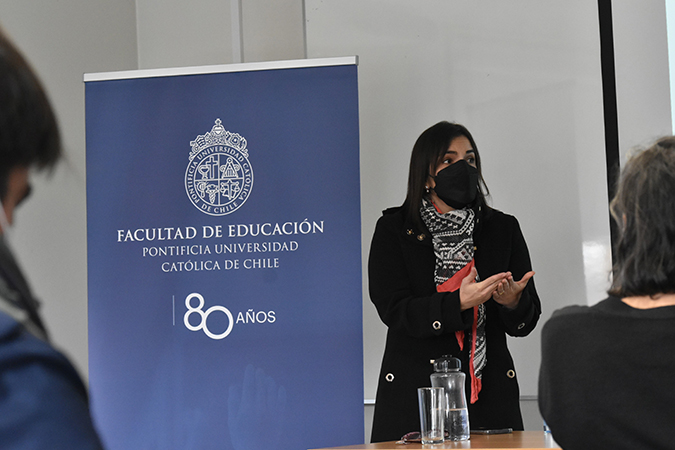Curricular prioritization: an opportunity to advance the development of skills
June 30, 2022

With the COVID-19 pandemic, the school system had to make adjustments to be able to continue with the teaching processes, such as cuts in learning objectives. But, did they also open up possibilities to rethink the way in which the contents are taught? In this note we tell you.
The curricular prioritization was born as a response to the educational needs of children and adolescents in the context of the pandemic due to COVID-19, Giving as a suggestion to focus teaching on essential points. "It was a decision that began to be implemented in the first half of 2020 and that was planned until 2021. Then it was extended until 2022, but today we are not certain about what will happen next," he said. Carmen Gloria Zuniga, academic of the Faculty of Education of the Catholic University, in the talk "Challenges and opportunities of curricular prioritization".
This was part of the topics discussed at the meeting held on June 14 that began the third cycle of Colloquia in Education UC, which seeks publicize the research carried out within the Faculty and discuss these issues.
One of the great criticisms directed at curricular prioritization, mentioned the academic, was that learning objectives were drawn, but the development of skills was not sought. From the Ministry of Education The justification was that the curriculum "requires structuring sufficiently varied and flexible teaching and learning situations that allow the maximum number of students to access, to the greatest degree possible, the curriculum and the set of capacities that constitute the essential learning objectives." and essentials of schooling”.
In this sense, Zúñiga pointed out that “the big question that arose within the community of teachers and academics is whether, with the objectives that were maintained, after the curricular cut, skills can be developed. In the case of History, Geography and Social Sciences, for sixth grade, of 27 learning objectives, only six were required and two suggested. How, then, do I teach the content, in a harmonious way, in such a way that it makes sense to the student?”, consulted.
According to the academic, the answer to this question has to do with the problematization. "The problematization requires three elements, which are difficult to achieve, but which we must support from the initial teacher training and continuous training: student engagement, generating instances of motivation and tasks that are authentic, that is, that resemble tasks that they can perform in the real world. Social mediation, where collaboration, coordination of individual capacities for problem solving is set in motion. Scaffolding and modeling, where formative evaluation processes are fundamental”, highlighted Carmen Gloria Zúñiga.
In the case of History, Geography and Social Sciences, according to the researcher, during the pandemic, by not having such a bulky curriculum, it was possible to problematize the objectives in the sense of considering the contexts and needs of the students, the national reality, but always taking into account the development of skills , putting the focus on the content. "Curricular prioritization gave us the opportunity as teachers to stop at our subject, to rethink the curriculum and to interpret it for the objectives that one as a teacher intends and pursues", Zuniga noted.
nuclearization
The reworking of two or more learning objectives, merging, integrating and systematizing their most relevant elements is what is called nuclearization. The objective of this is "to be able to comprehensively address them by facilitating curricular coverage"Zuniga said. However, to carry out this process it is not necessary to have a prioritization of the curriculum "nor is it necessary to guide us by a list of learning objectives, but to see how they relate to each other in order to problematize", he highlighted.
Curricular prioritization offers opportunities to inquire about problematization, skill development, and disciplinary integration. “It is also important consider the interest of students in order to bring topics that can relate to their lives”, pointed out the UC academic.
Such prioritization also offers the opportunity to expand teacher autonomy., as well as to evaluate the organization of the curriculum, but for this it is necessary to have strong support from the management team of the schools "since with them you will have to plan, analyze and integrate this content, always aiming at the development of skills. But it is also essential that from the initial teacher training and continuous training we look for these spaces for improvement”, concluded Carmen Gloria Zúñiga.
Colloquia in Education
For the third consecutive year, the Faculty of Education, through the Center for the Study of Policies and Practices in Education, CEPPE UC; la Directorate of Research in Education UC and UC Education Doctoral Program, carry out this activity to disseminate the research carried out by the academics and PhD students of the Faculty.
Justly, The next session on Tuesday, July 5 will be in charge of María Beatriz Cifuentes, student of the postgraduate program, who will present on “Small group participation: equity and its barriers”.
